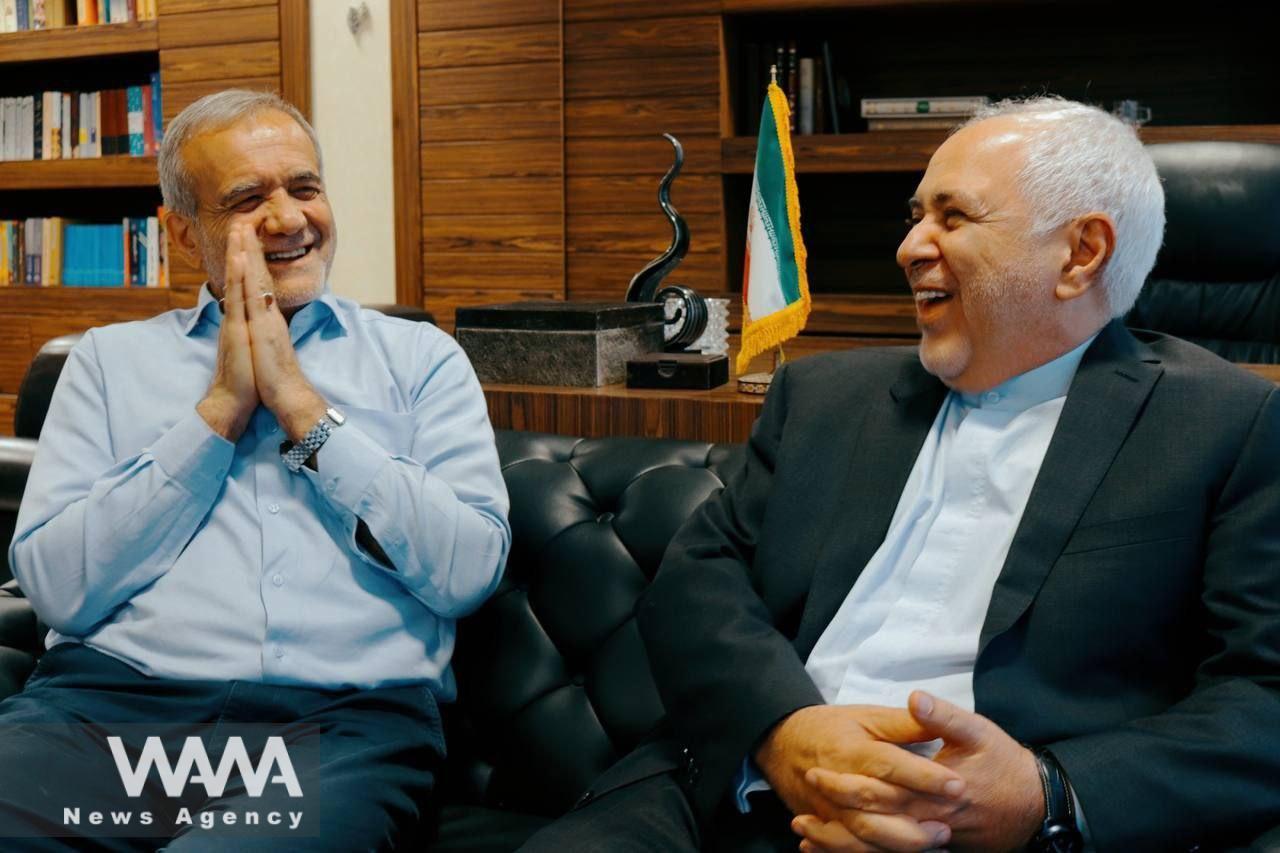The Criteria and Process for Selecting the Fourteenth Cabinet Members Explained
WANA (July 14) – On Sunday, July 14, 2024, Mohammad Javad Zarif shared a video on his personal Instagram page, stating: “The participation of people in the elections, whether they voted for Dr. Pezeshkian, for his opponent, or did not vote at all, has created an environment that fosters hope and enthusiasm in Iran’s political landscape. The upcoming government will take this hope into consideration and strive to advance with full effort and transparency.”
He added: “All segments of Iranian society, including women, ethnic groups, minorities, workers, the underprivileged, employers, and all other groups, should be involved in this process. We firmly believe in the involvement of civil society in the formation of the government and that various civil society institutions, scientific associations, universities, and professional organizations should participate in this process. Therefore, a steering council has been established. Immediately after the election results were announced, this council began holding regular meetings. Initially, it established the necessary criteria for candidates for government membership.”
The head of the transitional council for the fourteenth government emphasized: “These criteria were then sent to scientific associations, professional organizations, parties, and prominent figures. It is worth noting that these parties include opposition parties as well, and the prominent figures include Dr. Pezeshkian’s electoral rivals, because this government believes in consensus and a national unity government. It is committed to empathy and solidarity in moving towards the future.”
He stressed: “What is important to us is to carry out this work in a highly transparent manner, regularly informing the great people of Iran. Once the suggestions are received, they will be reviewed by various committees.”
Regarding the composition of these committees, Zarif noted: “It is important for our friends to know that each committee includes two academic experts, two non-academic specialists, one representative from the reformist camp, and members from other parties. We also have two representatives from professional organizations and civic groups, one representative from the private sector, and one representative from central and provincial headquarters. At least one woman and one member from ethnic or religious minorities will be present in every committee. Our task forces have leaders and secretaries, all of whom are young individuals under 40, mostly under 30. We have started this process and have made good progress.”
Referring to the criteria for selecting cabinet members, he stated: “Our work will result in recommendations to the President, comprising 60% of individuals under the age of 50-55. Among them, 60% will be first-time government members. This does not mean that 60% will be under 50 and that same 60% will also be first-timers. There could be 60% first-timers, and a different 60% where, if we propose six candidates, three are under 50, and three are first-timers. The calls have been sent out, and we hope to start reviewing the profiles from Sunday.”

Masoud Pezeshkian, the presidential candidate from the reformist front, in a meeting with Mohammad Javad Zarif, the former foreign minister in Hassan Rouhani’s government. The favorable foreign minister of Pezeshkian is Javad Zarif. Date 12 June 2024 – social media / WANA News Agency
He added: “Commitment to the Constitution and higher-level documents, integrity, honesty, and courage, which are the foundations of Dr. Pezeshkian’s work, are crucial. A national perspective, free from ethnic, religious, partisan, and regional biases, along with alignment and loyalty to the President’s discourse and approach, which you heard during the elections, are essential. Principles such as justice, being the voice of the voiceless, addressing the demands of youth and women, cultural and social interaction, restoring the dignity of educators, internal convergence and consensus, expertise and meritocracy, resistance, flexibility, and foreign interaction are key elements of the President’s discourse.”
The head of the transitional council continued: “Another criterion is the ability to understand the mission and problem-solving capability. Having an acceptable educational background, such as a master’s degree or higher, is important. Management experience is essential. Although not necessarily at the ministerial or cabinet level, individuals should have defensible backgrounds. More importantly, they should possess innovation, think about the future, and not be stuck in the past.”
He noted: “They should have a strategic perspective and skills for teamwork, and believe in expert work, which is one of Dr. Pezeshkian’s main election topics. Ultimately, they should be accepted by the organization they are to serve. One of the committees’ requirements is to recommend individuals who are part of the relevant organization, not outsiders. The committees will comprise nearly 400 members, and this process will be transparent.”
He emphasized: “As of today, no responsibilities in Pezeshkian’s government have been assigned, nor have any candidates for any positions been finalized. All nominees will be proposed by these committees to Dr. Pezeshkian, and ultimately, the President has the right to select individuals and introduce them to Parliament.”
In conclusion, he said: “I urge friends not to speculate, and if there is speculation, be aware that it is likely an attempt to create news. No decisions have been made, and any decision will be transparently communicated to the public. We hope this process will satisfy the great people of Iran.”












